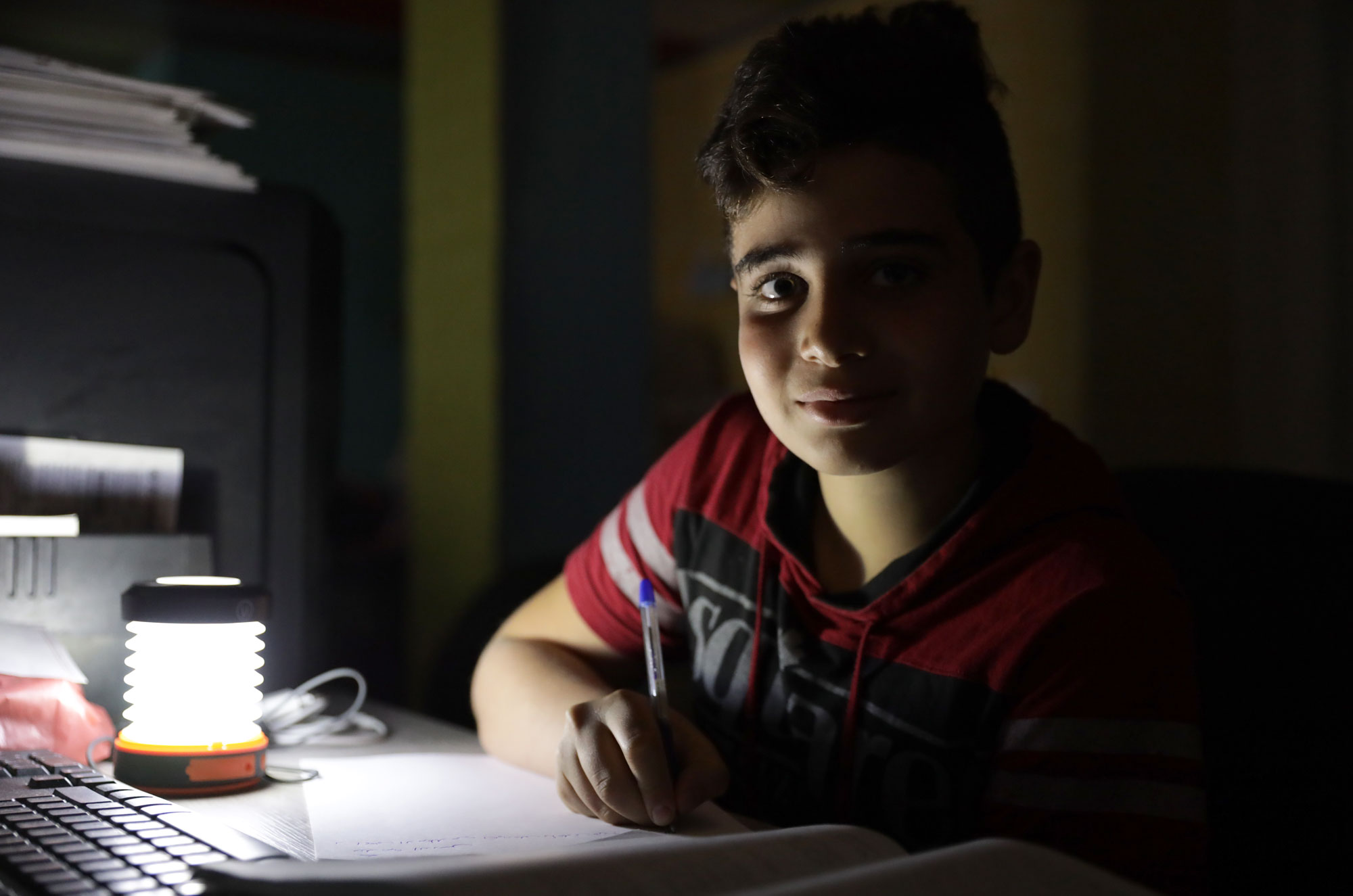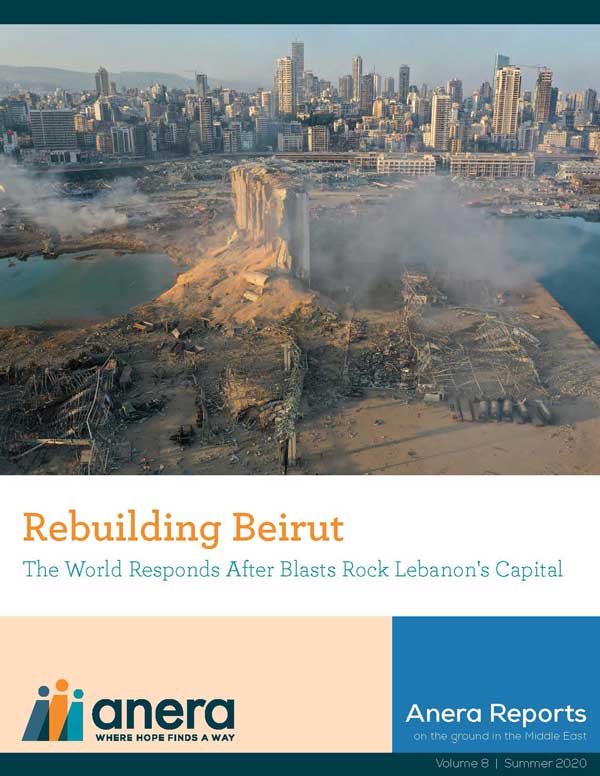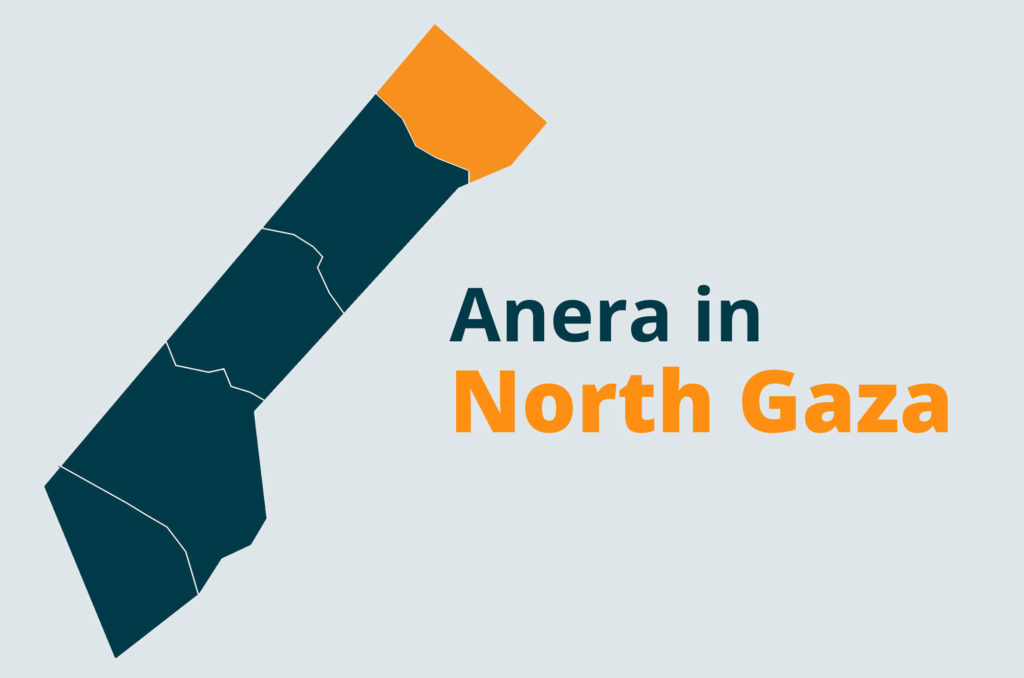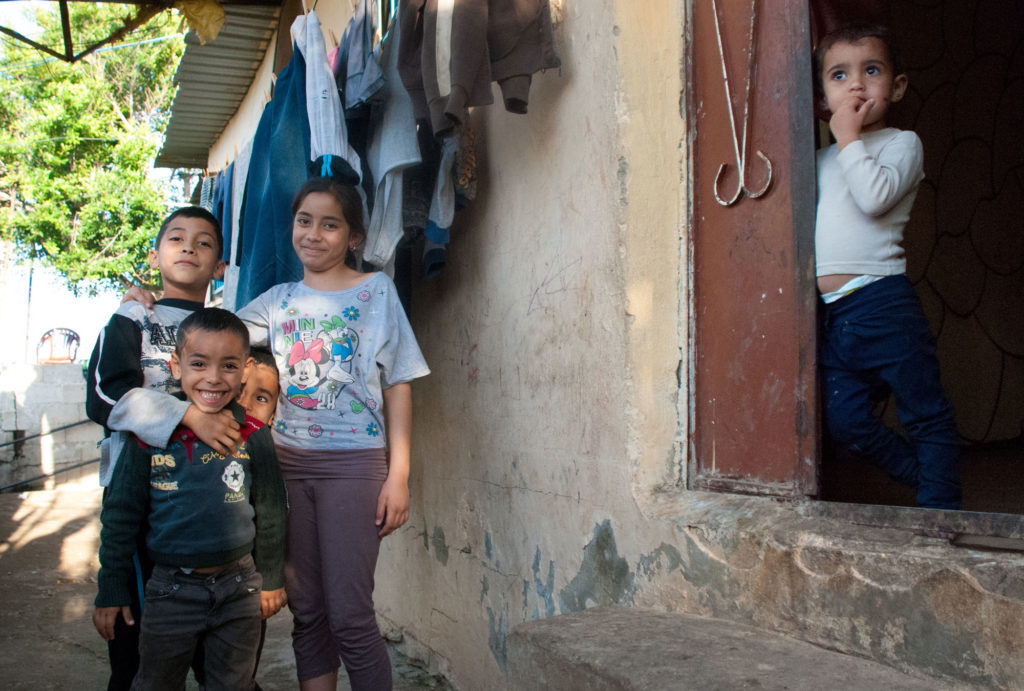Jan, 2025
Beirut, the vibrant capital of Lebanon, is a city that captivates visitors with its energy, beauty and history. The city also has endured a tumultuous past marked by conflicts and political instability, leaving scars that are still visible today.
Beirut Governorate | محافظة بيروت
Anera has been working in Lebanon since the 1970s, responding to urgent humanitarian needs and supporting long-term development projects for vulnerable communities. In 2006, Anera formally established an office in Beirut, deepening its presence and ability to respond directly to evolving needs on the ground.
Beirut, a city once known as the “Paris of the Middle East,” has long been a hub of culture, resilience, and innovation. Its rich history—marked by art, literature, and a dynamic blend of traditions—has shaped the identity of the Lebanese people. Yet in recent years, Beirut has been at the epicenter of compounding crises.
Since 2019, Lebanon has experienced one of the most severe economic collapses in modern history, plunging millions into poverty and destabilizing essential systems like healthcare, education, and infrastructure. In August 2020, the devastating Beirut port explosion tore through the capital, killing hundreds, injuring thousands, and displacing over 300,000 people. The blast compounded the country’s economic and political turmoil, leaving behind lasting trauma and widespread destruction.
More recently, the escalation of violence along Lebanon’s southern border and the devastating war with Israel have pushed the country deeper into a humanitarian crisis. Thousands of families have been displaced, vital services have been disrupted, and access to food, healthcare, and education remains increasingly out of reach for many.
In the face of these challenges, Anera continues to respond with urgency and compassion. From distributing medical supplies and hygiene kits to delivering food parcels and supporting psychosocial care, Anera’s team in Beirut is working tirelessly to meet the evolving needs of Lebanese families and Palestinian and Syrian refugees alike. As always, our work is rooted in local partnerships, dignity, and hope—helping communities weather the storm and rebuild their futures, one step at a time.
Humanitarian Response in 2024
During the intense weeks of fighting between Israel and Hezbollah in late 2024, civilians across southern Lebanon bore the brunt of the violence. Entire communities were displaced, homes and infrastructure were destroyed, and access to food, water, and medical care became dangerously limited. The humanitarian impact was immediate and overwhelming, and a rapid response was essential.
Anera mobilized quickly to meet those urgent needs. By the time the ceasefire took effect, we had served over one million people. That response included delivering hot meals to displaced families, distributing clean water to areas cut off from supply, and ensuring access to critical medications. In total, more than 92,000 people were served meals, 165,000 gallons of water were delivered, and 775,000 doses of medication reached those in need.
From makeshift shelters to underserved villages, Anera’s efforts during the height of the crisis offered a lifeline to Lebanon’s most vulnerable. Learn more at anera.org/lebanon-log.
Responding to the Beirut Port Explosion
Anera prioritized shelter, food, and health as the key areas of focus in our response to the port explosion in 2020. We worked in areas of Beirut that were underserved and already economically vulnerable, and then suffered the most from the blast – Karantina, Burj Hammoud, the Zoqaq El Blat and Basta Tahta areas of the Bachoura neighborhood, the Beydoun area of Achrafiye, Gemmayze and Mar Mikhael.
Anera volunteers and staff members organized clean-up efforts and distributed water, food parcels, and PPE to families and others who were picking up the pieces after the tragic explosion. For instance, in Burj Hammoud, a densely populated neighborhood near the port that was heavily damaged by the explosion, Anera delivered food and hygiene kits to 250 families. The facemasks that Anera distributed were manufactured by our vocational sewing students as a part of Anera’s COVID-19 response.
Beirut hospitals that were already tasked with treating COVID-19 patients were flooded with victims of the explosion. Some of the hospitals closest to the blast site suffered partial or extensive damage. Anera provided grants worth $662,000 to Geitawi Hospital, Rafik Hariri University Hospital, Hotel Dieu De France Hospital, Lebanese American University Medical Center and American University of Beirut Medical Center to assist in their recovery efforts.
Our medical donations program team worked with our established network of medical aid partners on several shipments of medicines, healthcare supplies, PPE, and relief items to respond to the emergency. In addition to donated shipments, Anera locally procured a variety of supplies that Beirut-area healthcare facilities urgently needed to treat the wounded.
Within the first year of the explosion, Anera distributed 85 shipments of medicines and medical supplies to 48 healthcare recipient organizations in Beirut.
Anera also employed graduates of our construction courses to rehabilitate homes alongside grassroots groups, with the aim of helping the most vulnerable and displaced people return to their homes as quickly as possible. Anera’s teams repaired 1,205 homes and businesses in neighborhoods most affected by the explosion.
Most Beirut residents rely on rooftop storage tanks for their potable water, filled with water that they must purchase from private companies. The explosion destroyed many of them. Anera erected new water tanks on 189 homes in Karantina, Khandak El Ghamik and Geitawi -- all neighborhoods very close to the port.
Education in Beirut
From 1987 to 2010, Anera’s scholarship program supported the work of the Al Kafaàt Foundation in Lebanon, a non-profit helping people who have disabilities and social challenges. We also have assisted the organization in a myriad of other ways — rebuilding structures on their campuses during the Lebanon civil war, supplying hearing equipment for their school for the deaf, and providing financial aid to young Palestinians attending vocational education classes.
In the early 2020s, Anera supported the Rosary Sisters Hospital and School in the Achrafiye neighborhood. In response to the August 2020 explosion, we provided them with supplies to help them keep functioning, including personal hygiene material for students after a COVID-19 lockdown. In early summer 2022, Anera donated learning materials and school supplies, including electronic tablets and laptops preloaded with engaging content, from the educational non-profit Thaki. The Amsterdam-based non-profit organization provided the equipment to help students who lost their laptops in the blast or who could not afford to buy one. The school is also using the donated equipment for a computer science classroom.
Job Skills Training
Across Lebanon Anera implements a market-driven vocational education program to provide youth with a package of technical and soft skills that help them get jobs. This competency-based training program is flexible and contextualized to the ever-changing crises that hit Lebanon. Anera focuses on in-demand skills and cash-for-work opportunities that lead to long-term employment. Our courses cover many subjects within the areas of construction, healthcare, IT, food production and agriculture, and sewing.
In the early 2020s, for instance, Anera implemented a new vocational cooking course in Beirut that trained youth in professional cooking skills, various cuisines, and teamwork within the kitchen. The course introduced students to tools and tricks of the trade, preparing them to work in professional kitchens. Together with our local implementing partner, Genies, located in the Bachoura neighborhood, we offered the 50-day course in professional cooking. Of the 20 students who participated, 15 then extended their practical learning through cash-for-work positions at a restaurant. Three of the students — each of whom has a disability — were hired by Genies as assistant chefs.
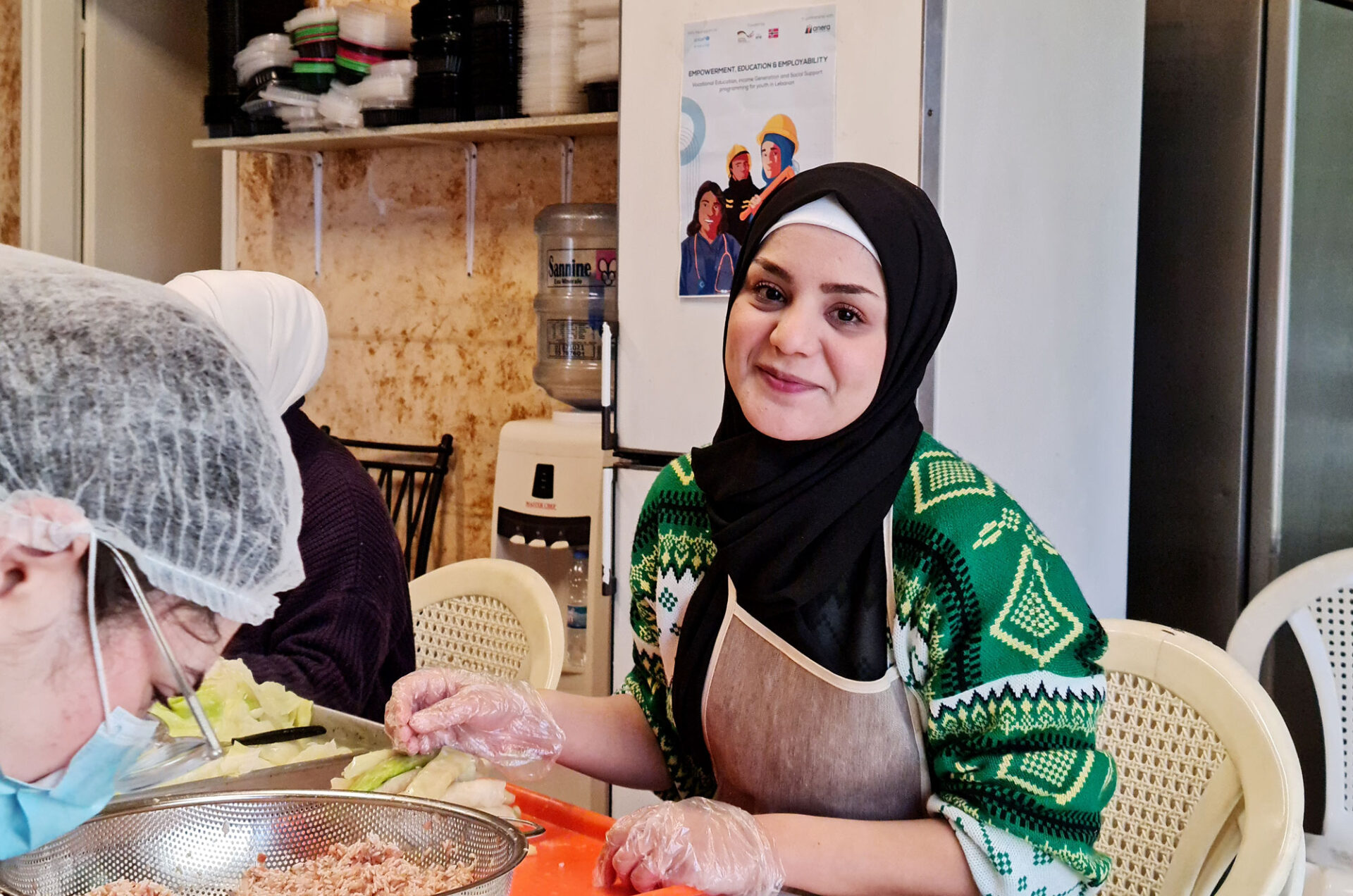

Healthcare in Beirut
Prior to the Beirut Port explosion in August 2020, Anera’s medical aid program primarily serviced healthcare facilities located outside of the city, such as the Shatila Palestinian Refugee Camp just outside the official boundary of the Beirut Governorate. Starting in 2020, however, we added four Beirut-area hospitals to our list of medical aid recipients: Rafik Hariri University Hospital in Jnah, Lebanese Hospital Geitawi in Achrafiye, Hôtel-Dieu de France in Achrafiye, and Karantina Public Hospital. Anera also delivered medicines and healthcare supplies to the Ibad Al Rahman Association, a nonprofit based in the Basta neighborhood.
In the early 2020s, Anera delivered a regular, reliable supply of chronic disease medicines to treat Beirut area patients at the Ajialouna Organization, Al Rayyan Medical Center, Al Sheikh Nizar Al Halabi Medical Center, and the Makhzoumi Primary Healthcare Center. Many patients across the country suffering from chronic diseases have been forced to interrupt their medical treatment either because their medicines are out of stock or because they have become too expensive. Anera’s chronic disease medicine deliveries to 50+ medical centers across the country have helped thousands of people treat their conditions.
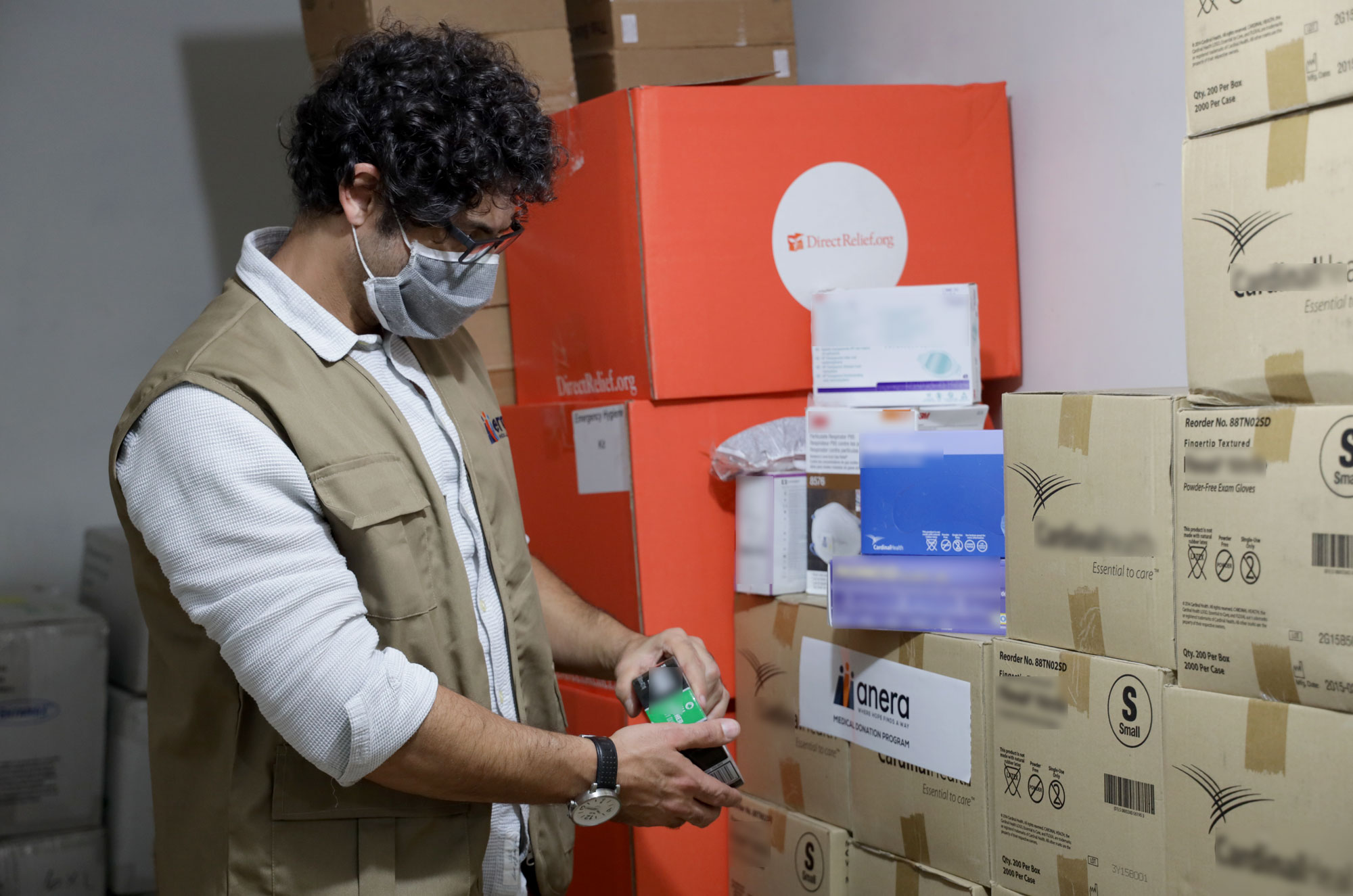

Training Nurses in Beirut
The harsh realities in Lebanon in the early 2020s pushed the healthcare system to its limit, as the pandemic and the unprecedented financial crisis ravaged the country. Healthcare professionals like nurses were fleeing the country by the thousands. Anera’s Nurses for Lebanon program supported students enrolled in nursing programs at reputable universities in Lebanon. Anera partnered with four universities for the program: American University of Beirut, the Lebanese American University, the University of Balamand and Beirut Arab University.
Health Education in Beirut
COVID-19 Vaccination Campaign
Anera’s youth-led public health team designed a series of activities and published informational materials, both online and offline, to increase community awareness about the path to preventing infection. We used social media and WhatsApp to disseminate health and safety messages. We also enlisted professionals with a range of skills in the effort, including illustrators, designers, filmmakers, social workers, community leaders and small business owners. Volunteers conducted door-to-door visits to help community members become better informed about the COVID vaccine and to assist them in registering online via the Ministry of Public Health’s platform. Anera registered more than 11,000 people, in camps across Lebanon, including Mar Elias Palestinian Refugee Camp in Beirut.
Menstrual Health
Tackling a subject like menstrual health may seem straightforward, but in Lebanon openly discussing menstruation and bodily issues remains taboo within many conservative communities. In the early 2020s, Anera held awareness sessions for young women and girls across Lebanon's camps, including in Mar Elias. We taught the physiology of menstruation and good practices for handling monthly cycles. We also distributed reusable pads and other hygiene items. Mothers who attended reported being better able to talk to their daughters about puberty and menstrual health. And participants more broadly reported having changed their own behaviors to reflect their newfound knowledge.
Ongoing Humanitarian Relief
Shoes
A year after the port explosion, many residents were still walking Beirut’s streets in torn or worn out slippers or even barefoot. Many families could not afford shoes to protect their feet from cuts, bruises and infections. To help, Anera distributed 43,601 pairs of new shoes, from sneakers to ankle boots. Two of our local partners were the Dar El Amal in the Sabra neighborhood and Karagheusian Association in Burj Hammoud.
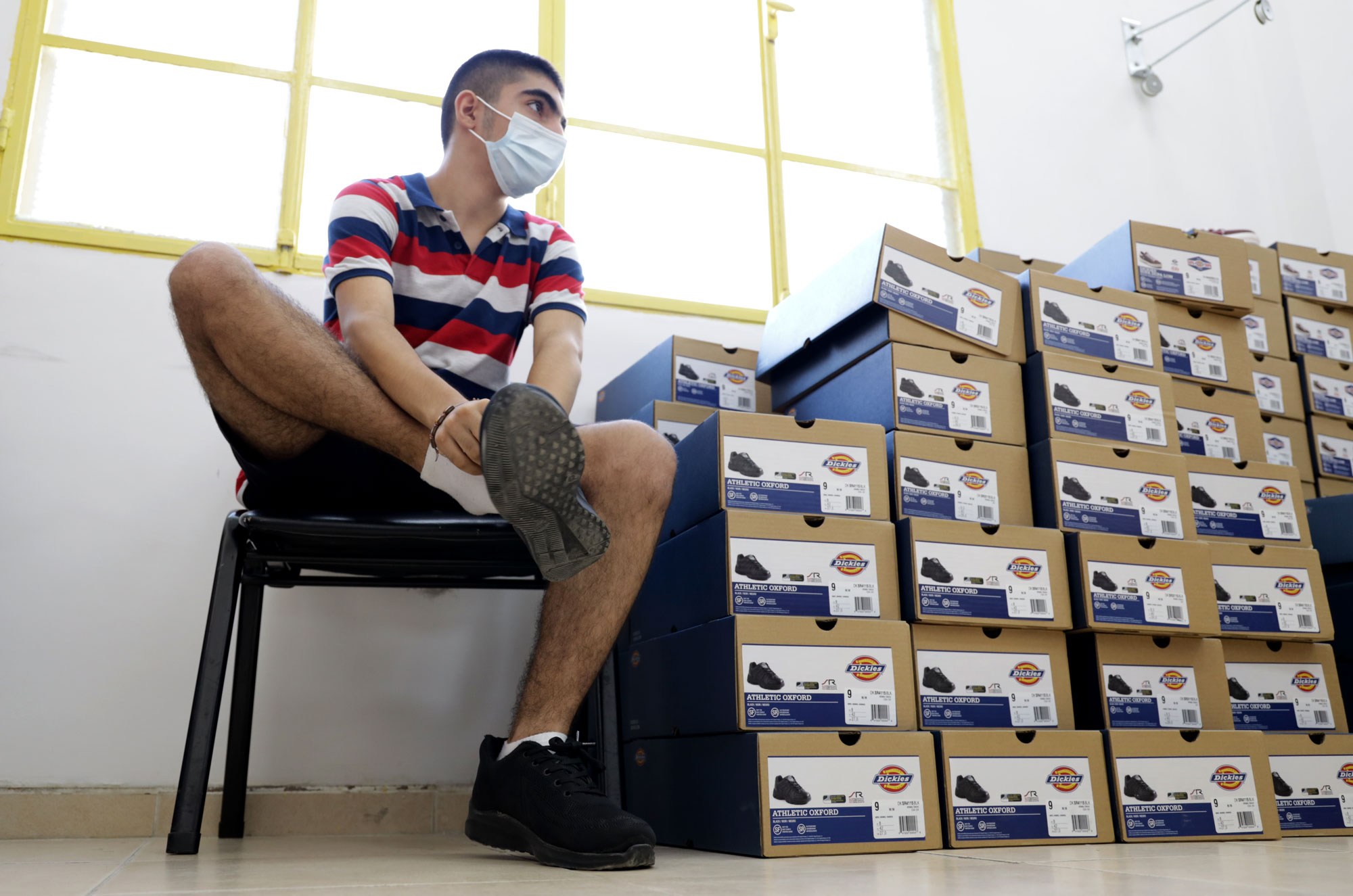

Winter Clothes
In the elevated and mountainous parts of Lebanon, the winter months often bring intense cold. For Syrian refugees prohibited from building permanent housing and, increasingly, for the growing ranks of vulnerable Lebanese citizens and Palestinian refugees, the cold season is dangerous and expensive. To help families get through the cold months, Anera delivers a program that manufactures and distributes warm clothing. In January 2023, in coordination with our local partners Al Mouwasat Association in Saida and the Ajialouna Center in Beirut's Tallet El Khayat neighborhood, we hired 65 vocational sewing students to make winter garments for distribution to 7,400+ people.
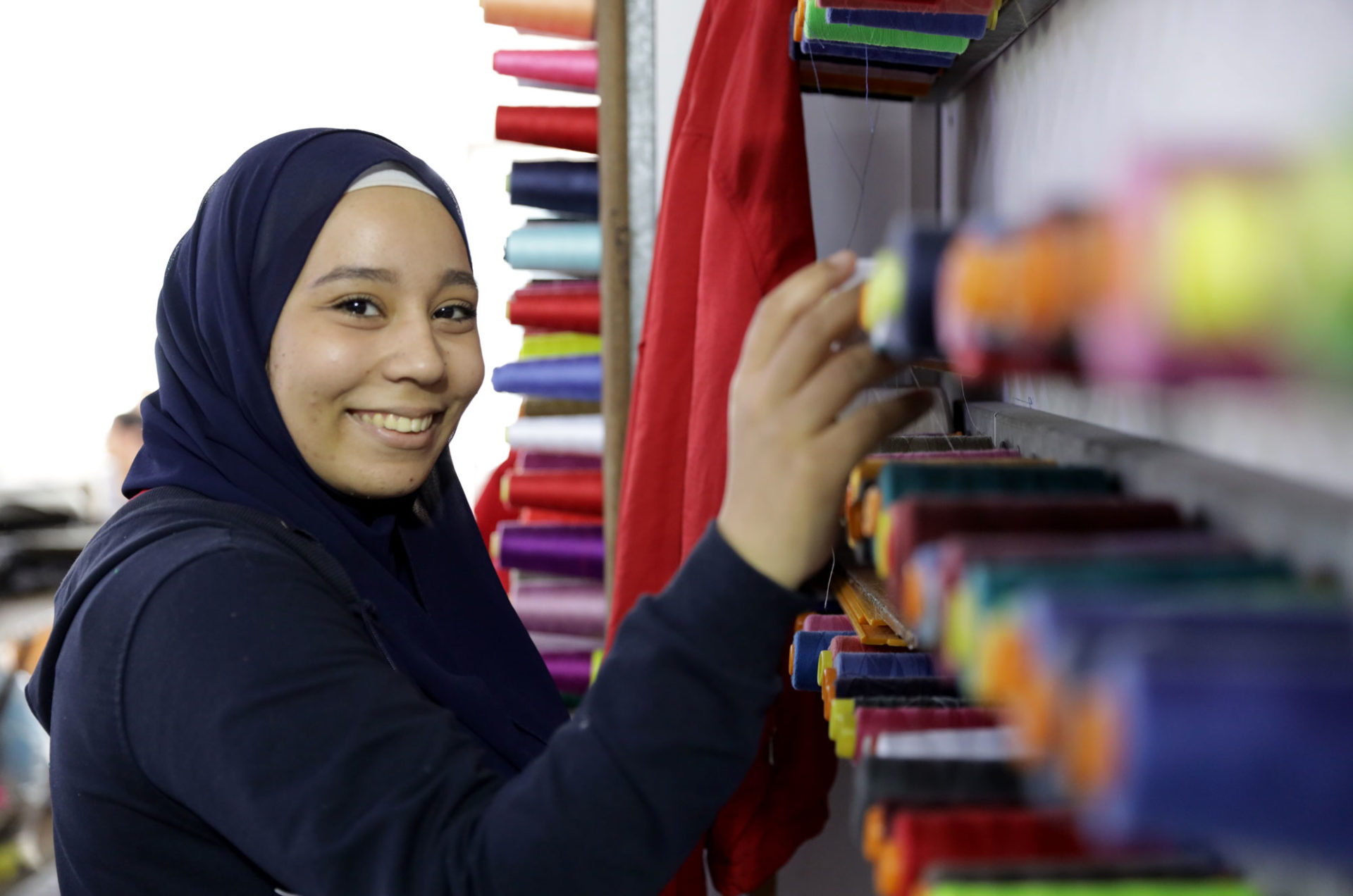

Responding to Burns
In the early 2020s, Lebanon witnessed the Beirut Port explosion, a fuel tank explosion in North Lebanon, and many wildfires across the country that left people injured and homeless. These events, and the terrible burns they inflicted, galvanized Anera and our partners to respond by making easy-to-use first aid kits widely available to first responders. Anera distributed donated wildfire response kits to local frontline responders, including the Beirut Fire Brigade in the Karantina neighborhood. The kits contained items such as bandages, scissors, burn ointment, antibiotics, adrenaline, analgesics, face masks, gloves, goggles, wound disinfectant, and nebulizers.
Distributing Portable Lights
In 2022, Anera worked with its local charity partners to distribute nearly 500 portable, manually rechargeable emergency lights to families in Mar Elias (and Shatila, in Mount Lebanon governorate) who suffered long hours without electricity.
